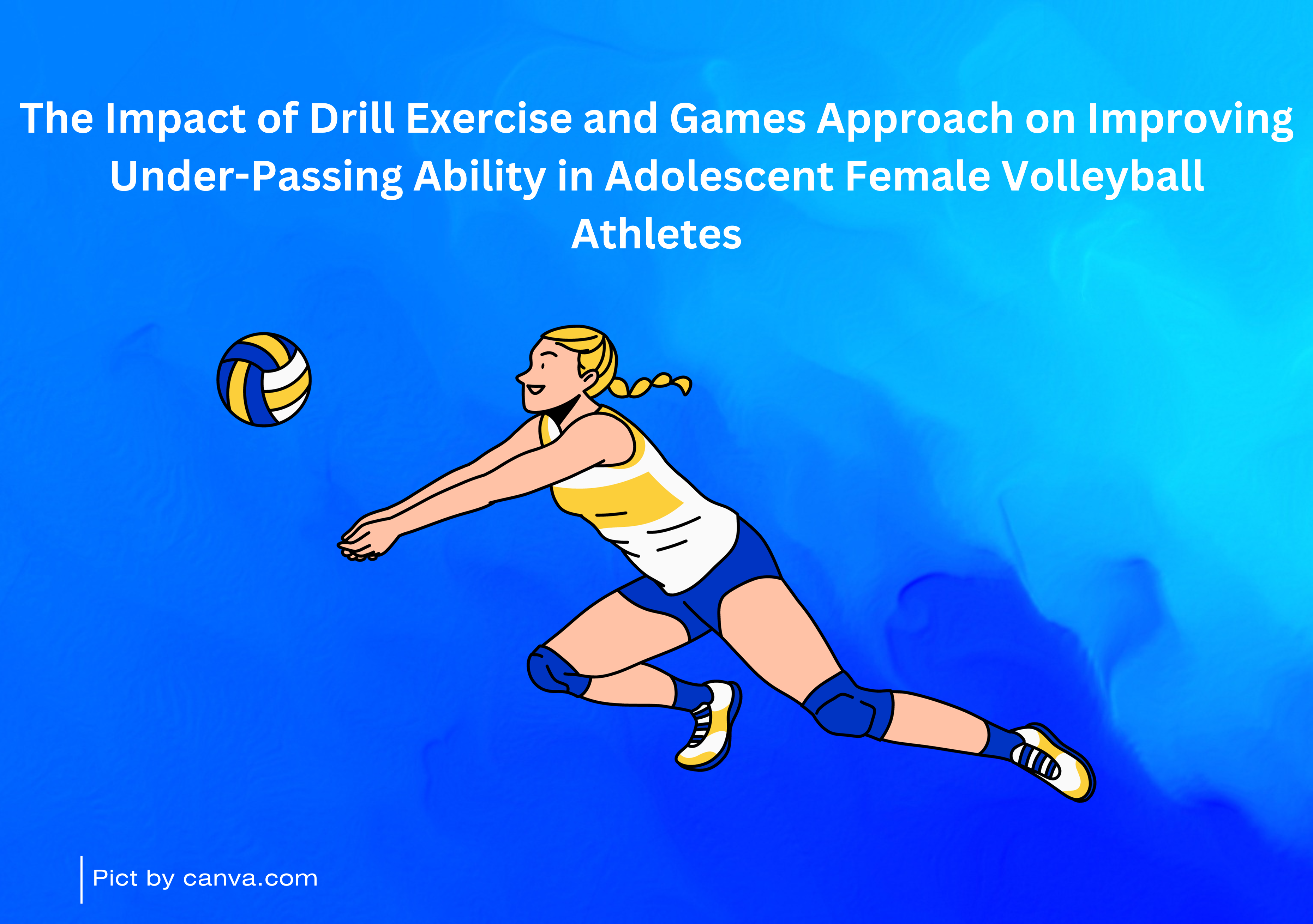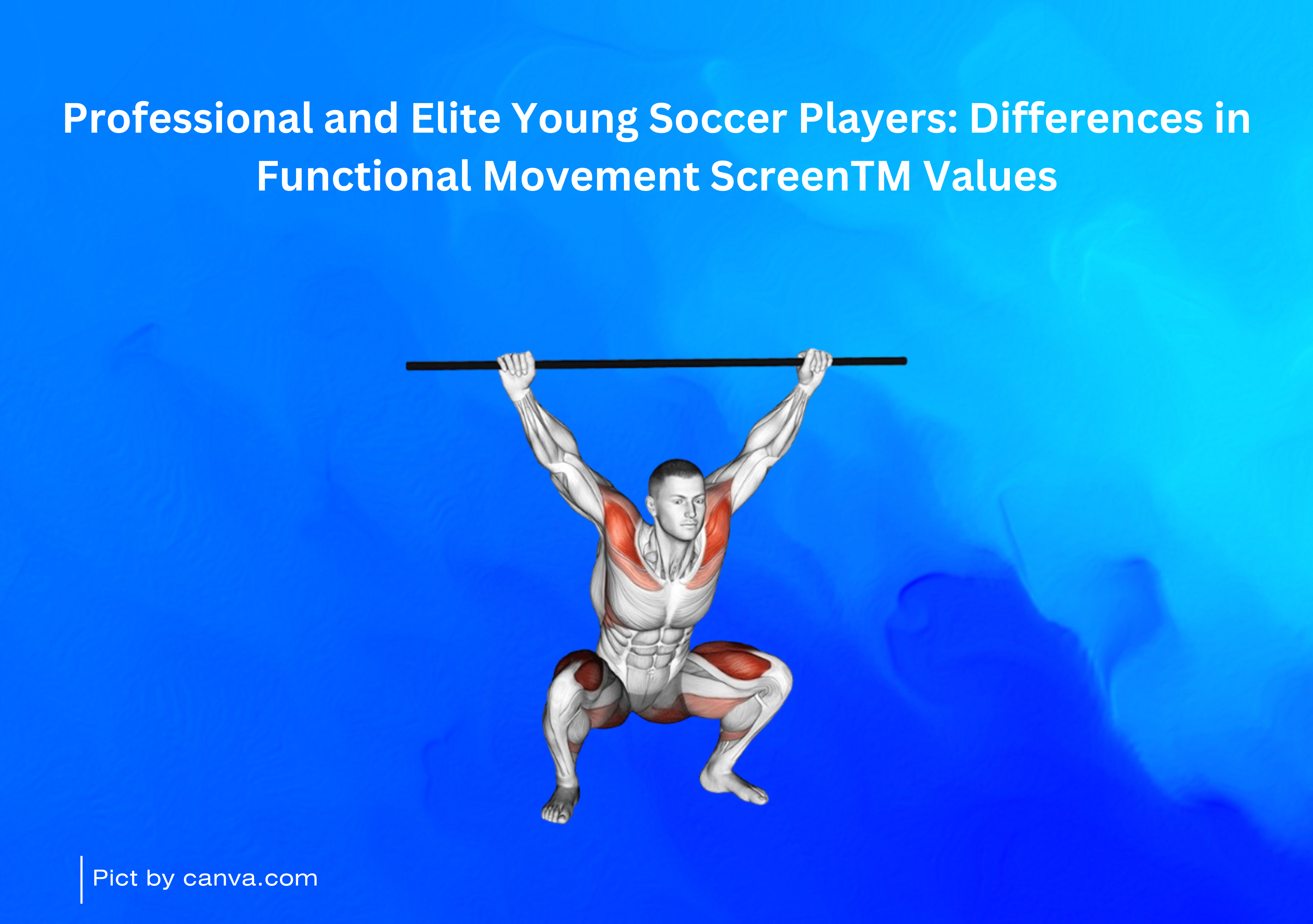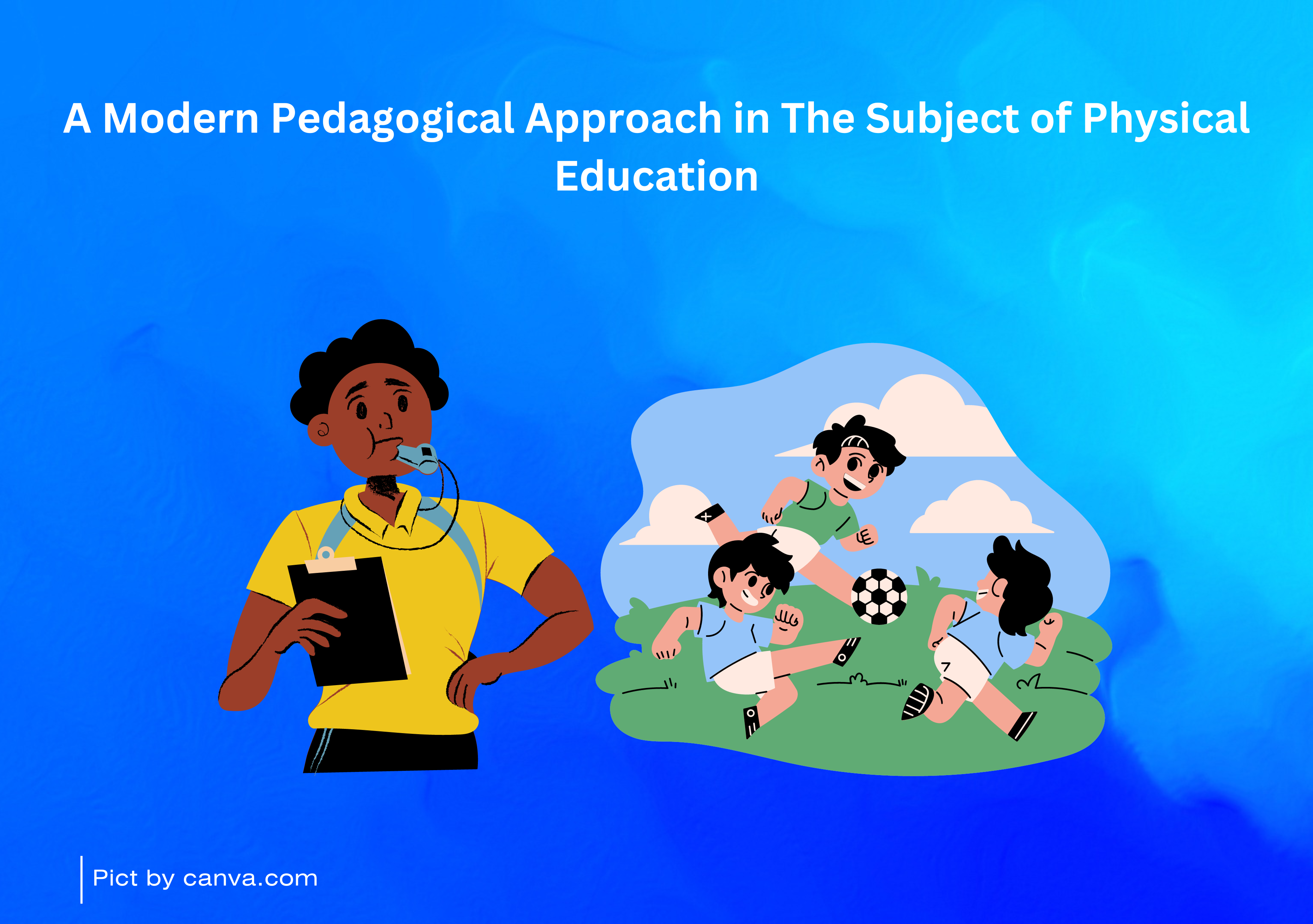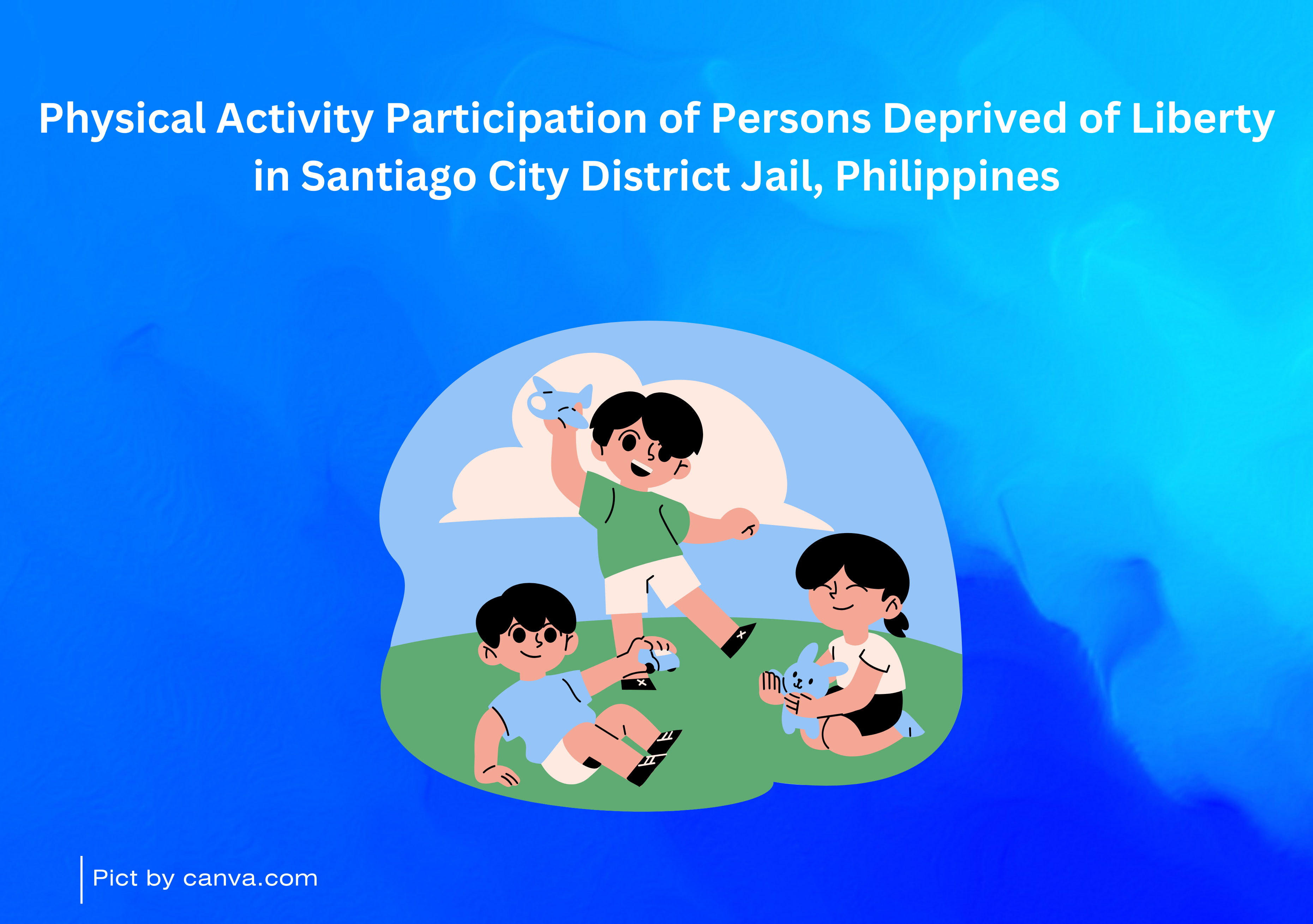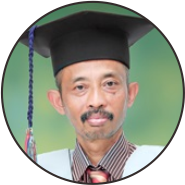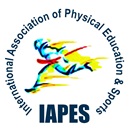Capabilities in Physical Education: A Comparative Analysis of School Heads’ and Teachers’ Perspectives
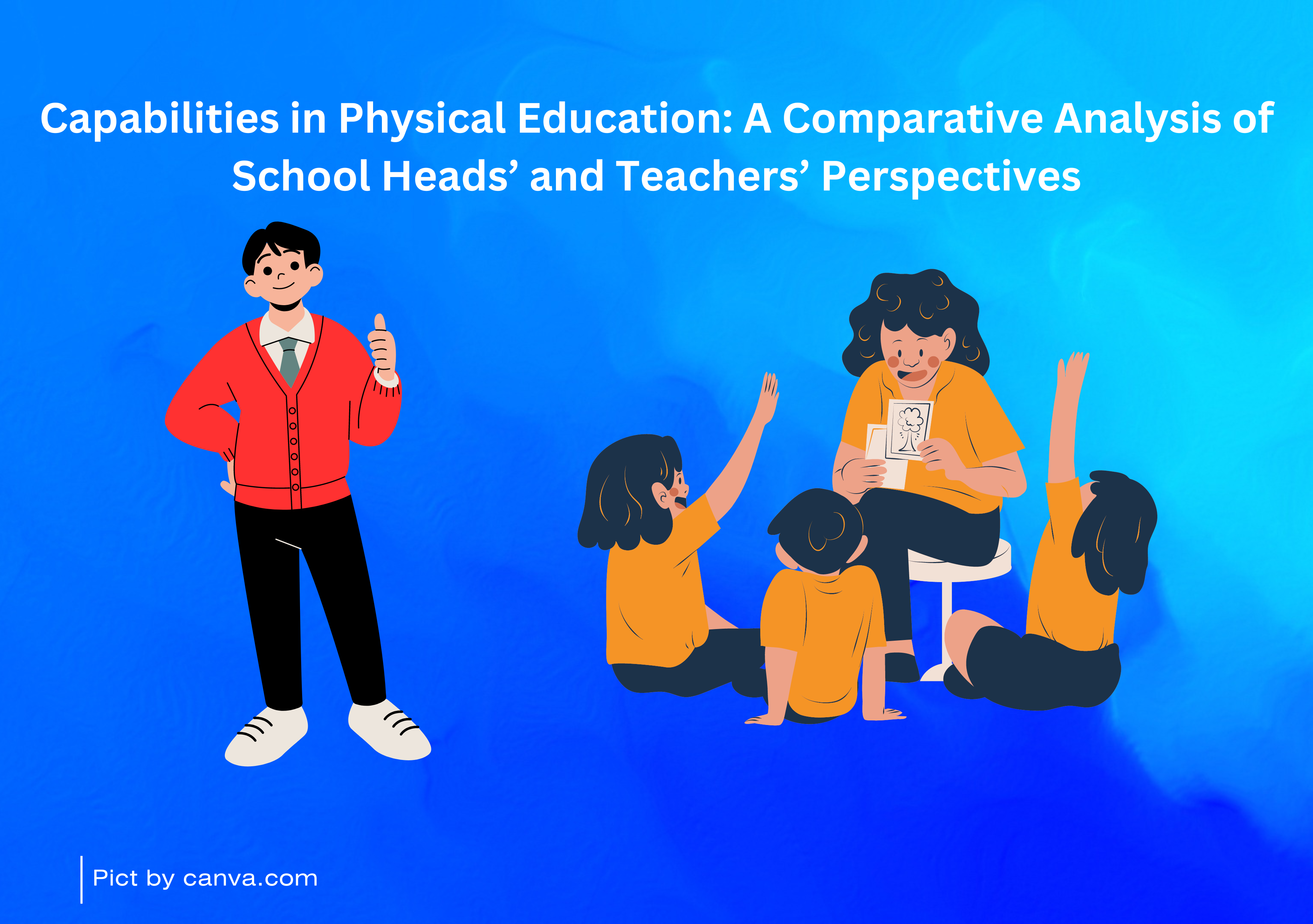
Downloads
Background: Effective education delivery relies on PE teachers’ abilities. Research indicates that students’ school performance significantly depends on the quality of PE teaching.
Objectives: This study focused on assessing instructional capabilities in physical education. Specifically, it examined how school heads and teachers evaluated teachers’ abilities in content knowledge, pedagogical skills, communication, and professionalism. Additionally, the study compared assessments between the two groups.
Methods: The study employed a descriptive research design involving 98 physical education teachers and 59 school heads from the Division of Batangas City. Data collection utilized a researcher-made questionnaire and interviews. Statistical analysis involved weighted mean and independent t-tests for data interpretation.
Results: The assessment revealed valuable insights regarding PE teachers’ instructional capabilities. Administrators acknowledged strengths in lesson introduction and accurate content delivery. However, areas for improvement included integrating key elements and promoting higher-order thinking skills. PE teachers felt confident introducing lessons but recognized a need to refine performance demonstrations. Administrators praised diverse teaching methods but suggested creating more challenging experiences. Communication skills were positive, with room for improvement in grammatical accuracy. PE teachers expressed dedication to student physical education but identified a need for more decisive leadership in school-based activities. The findings highlighted specific improvement needs while emphasizing contrasting perceptions between administrators and PE teachers.
Conclusion: The assessment found that physical education (PE) teachers are capable in delivering junior high school PE. However, they need familiarity with emerging trends to enhance instruction. School heads and PE teachers have differing views on instructional capabilities, attributed to assessment sources: administrators rely on scheduled observations, while PE instructors use self-assessment and daily teaching experiences.
Backman, E., & Barker, D. M. (2020). Re-thinking pedagogical content knowledge for physical education teachers–implications for physical education teacher education. Physical education and sport pedagogy, 25(5), 451-463. https://doi.org/10.1080/17408989.2020.1734554
Baumgartner, M. (2022). Professional competence(s) of physical education teachers: terms, traditions, modelling and perspectives. German Journal of Exercise and Sport Research, 52(4), 550–557. https://doi.org/10.1007/s12662-022-00840-z
Boyko, G. L., Kozlova, T. G., & Sharafutdinova, S. (2022). The impact of physical education on the formation of the health culture of students. Scientific Journal of National Pedagogical Dragomanov University. Series 15. Scientific and Pedagogical Problems of Physical Culture (Physical Culture and Sports), 12(158), 16–19. https://doi.org/10.31392/npu-nc.series15.2022.12(158).02
Brinia, V., Katsionis, C., Gkouma, A., & Vrekousis, I. (2023). Attitudes and perceptions of school principals about the contribution of evaluation to the efficient operation of schools both at the administrative and educational levels. Education Sciences, 13(4), 366. https://doi.org/10.3390/educsci13040366
Brown, T. D. (2023). On the periphery of pedagogical practice in health and physical education (HPE): the importance of self-management skills for physical activity. Curriculum Studies in Health and Physical Education, 1–16. https://doi.org/10.1080/25742981.2023.2256304
Bustami, Y., & Putra, E. (2023). An analysis of school principal’s managerial competencies on accreditation ranking. Jurnal Educatio FKIP UNMA, 9(2), 744–752. https://doi.org/10.31949/educatio.v9i2.4757
Cale, L. (2023). Physical education: At the centre of physical activity promotion in schools. International Journal of Environmental Research and Public Health, 20(11), 6033. https://doi.org/10.3390/ijerph20116033
Chavez, C. A., Olan, C., Carandang, C. A., Fabros, W., Pesimo, J., & Pitao, C. (2020). Social media usage on effective communication skills of grade 12 Fidelis senior high students. Unpublished. https://doi.org/10.13140/RG.2.2.11208.65283
Capes, B. (2022). Teacher Perceptions of Obstacles to Physical Education Instruction: A Qualitative Inquiry (Doctoral dissertation, American College of Education).
Classmate.ph. (2022, March 13). Physical Education (Grade 1 to Grade 10) K to 12 Curriculum Guide. Retrieved from https://classmate.ph/physical-education-grade-1-to-grade-10-k-to-12-curriculum-guide/
Corbin, C. B., Welk, G. J., Corbin, W. R., & Welk, K. A. (2018). Concepts of fitness and wellness: A comprehensive lifestyle approach. McGraw-Hill Education.
Corliss, S. B., & Lee, M. W. (2022). Assessment and teaching of professional attitudes and behaviors. In An Introduction to Medical Teaching (pp. 221–237). Springer International Publishing.
Daing, C. A., & Mustapha, L. C. (2023). School administrators’ instructional leadership skills and teachers’ performance and efficacy in senior high schools in the national capital region, Philippines. International Journal of Educational Policy Research and Review, 10(1). https://doi.org/10.15739/ijeprr.23.001
Dar, D. R. A. (2018). Qualities of effective teachers. International Journal of Advanced Multidisciplinary Scientific Research, 1(10), 82–87. https://doi.org/10.31426/ijamsr.2018.1.10.1019
DepEd memo no. 20, s. 2017. DepEd Resources. https://depedresources.com/deped-memo-no-20-s-2017/
Department of Education. (2019). DepEd continues to drive improvements to teaching quality with new standards for school leaders. Retrieved from https://www.deped.gov.ph/2020/10/04/deped-continues-to-drive-improvements-to-teaching-quality-with-new-standards-for-school-leaders/
Department of Education. (2019). K to 12 Curriculum Guide: Physical Education. Retrieved from https://www.deped.gov.ph/wp-content/uploads/2019/01/PE-CG.pdf
Dulay, M. Q. (2022). Implementation of Music, Arts, physical education and health (MAPEH) program and challenges encountered: Basis for a proposed action plan. International Journal of Multidisciplinary: Applied Business and Education Research, 3(5), 731–736. https://doi.org/10.11594/ijmaber.03.05.01
Ferraz, R., Branquinho, L., Sortwell, A., Teixeira, J.E., Forte, P., & Marinho, D.A. (2023) Teaching models in physical education: current and future perspectives. Montenegrin Journal of Sports Science and Medicine, 19(1), 53–60. https://doi.org/10.26773/mjssm.230307
Fong, W., Kwan, Y. H., Yoon, S., Phang, J. K., Thumboo, J., Leung, Y. Y., & Ng, S. C. (2020). Assessment of medical professionalism using the Professionalism Mini Evaluation Exercise (P-MEX) in a multi-ethnic society: a Delphi study. BMC Medical Education, 20(1). https://doi.org/10.1186/s12909-020-02147-9
García-Hermoso, A. (2023). Health-related fitness during early years, childhood, and adolescence. In Handbook of Clinical Child Psychology (pp. 763–788). Springer International Publishing.
Griban, G., Bosenko, A., Asauliuk, I., Topchii, M., Vysochan, L., Zamrozevuch-Shadrina, S., Orlyk, N., Pilipchuk, P., Skyrda, T., Bloshchynskyi, I., & Shcherbatiuk, N. (2022). Professional and communicative competence of physical education instructors in postmodern education. Postmodern Openings, 13(4), 158–186. https://doi.org/10.18662/po/13.4/512
Hardman, K., & Routen, A. (2014). UNESCO-NWCPEA: World-wide survey of school physical education; final report. UNESCO.
Janse van Vuuren, J., & van der Bank, F. (2023). The development of a behavioural competency framework for school principals. SA Journal of Industrial Psychology, 49, 2050. https://doi.org/10.4102/sajip.v49i0.2050
Khalil, M. K., & Elkhider, I. A. (2016). Applying learning theories and instructional design models for effective instruction. Advances in Physiology Education, 40(2), 147-156.
Khan, A., Khan, S., Zia-Ul-Islam, S., & Khan, M. (2017). Communication Skills of a Teacher and Its Role in the Development of the Students' Academic Success. Journal of Education and Practice, 8(1), 18-21. https://eric.ed.gov/?id=EJ1131770
Krahe, C., Escamilla-Fajardo, P., & López-Carril, S. (2021). The influence of teacher-student communication on the importance of Physical Education. Facta Universitatis, Series: Physical Education and Sport, 635-647. https://doi.org/10.22190/fupes200916061e
Huong, V. T. M. (2020). Factors affecting instructional leadership in secondary schools to meet Vietnam’s general education innovation. International Education Studies, 13(2), 48. https://doi.org/10.5539/ies.v13n2p48
Leo, F. M., Flores-Cidoncha, A., Ramírez-Bravo, I., López-Gajardo, M. A., & Pulido, J. J. (2023). Teaching methodology instruments in physical education: A systematic review. Measurement in Physical Education and Exercise Science, 27(4), 377–390. https://doi.org/10.1080/1091367x.2023.2197887
Lipovec, A., Tekavc, J., Cugmas, Z., Vršnik Perše, T., & Legat, D. (2023). Perspectives on Teacher Education and Development. Univerza v Mariboru, Pedagoška fakulteta. https://doi.org/10.18690/um.pef.1.2023
Lynch, T., & Lynch, T. (2019). Theories, Models and Approaches: Physical Education and Wellbeing. Physical Education and Wellbeing: Global and Holistic Approaches to Child Health, 15-34. https://doi.org/10.1007/978-3-030-22266-6_2
Liusnea, S. (2022). The Relationship between Fitness and Healthy Lifestyle. Balneo and PRM Research Journal, 13(4), 521-521. https://doi.org/10.12680/balneo.2022.521
McNamara, S. W. T., & Rizzo, T. L. (2023). Principals’ attitudes and intentions toward supporting adapted physical education. European Physical Education Review, 29(3), 421–437. https://doi.org/10.1177/1356336x231158495
Molano-Tobar, N. J., Torres Quintero, L. M., & Yanza Mera , P. A. . (2023). Formative research in the accreditation of physical education programs. Retos, 49, 1068–1073. https://doi.org/10.47197/retos.v49.99431
Mousena, E., & Raptis, N. (2020). Beyond teaching: School climate and communication in the educational context. Education at the Intersection of Globalization and Technology, 153-170.
Napalkova, T., & Milkina, O. (2023). Features of physical education classes and their effects on increase of physical workability of female students and the course. Scientific Journal of National Pedagogical Dragomanov University. Series 15. Scientific and Pedagogical Problems of Physical Culture (Physical Culture and Sports), 3(162), 300–303. https://doi.org/10.31392/npu-nc.series15.2023.3k(162).61
Ní Chróinín, D., Fletcher, T., & O’Sullivan, M. (2018). Pedagogical principles of learning to teach meaningful physical education. Physical Education and Sport Pedagogy, 23(2), 117–133. https://doi.org/10.1080/17408989.2017.1342789
Nurmai, E. (2020, August). The Different Effect of Instructional Approaches of Physical Education and Students’ Motor Capability on Students’ Physical Fitness. In 1st Progress in Social Science, Humanities and Education Research Symposium (PSSHERS 2019) (pp. 297-300). Atlantis Press.
OECD. (2013). Teachers for the 21st Century: Using Evaluation to Improve Teaching. Paris: OECD Publishing.
Poulou, M. S., Reddy, L. A., & Dudek, C. M. (2023). Teachers and school administrators’ experiences with professional development feedback: The classroom strategies assessment system implementation. Frontiers in Psychology, 14, 1074278. https://doi.org/10.3389/fpsyg.2023.1074278
Popkova, E. (2020). The Pedagogic Role of Assessment in Improving Learner Outcomes. Changing Language Assessment: New Dimensions, New Challenges, 23-52.
Reyes, E. M., Daran, D. N., & Daran, A. M. (2023). Junior high school mapeh teachers’ lived experiences, difficulties and coping mechanism in teaching physical education in distance learning. International Journal of Research Publications, 126(1). https://doi.org/10.47119/ijrp1001261620224985
Soga, S., Mikhailenko, V., & Dobrovolsky, V. (2022). The influence of physical education on the psycho-physical state of students. Scientific Journal of National Pedagogical Dragomanov University. Series 15. Scientific and Pedagogical Problems of Physical Culture (Physical Culture and Sports), 12(158), 31–33. https://doi.org/10.31392/npu-nc.series15.2022.12(158).07
Surbakti, S. (2020). The Relationship of Teacher's Professionalism With Physical Education Results. International Journal of Science and Research (IJSR), 9(07), 686-688. https://doi.org/10.21275/SR20702113424
Surprenant, R., & Cabot, I. (2023). A pedagogical strategy applied in physical education to encourage sustainable physical activity. Journal of Education and Learning, 12(5), 13. https://doi.org/10.5539/jel.v12n5p13
Tsuda, E., Ward, P., Li, Y., Higginson, K., Cho, K., He, Y., & Su, J. (2019). Content knowledge acquisition in physical education: Evidence from knowing and performing by majors and nonmajors. Journal of Teaching in Physical Education, 38(3), 221-232. https://doi.org/10.1123/jtpe.2018-0037
Uskova, S., Prus, N., & Krivenda, V. (2022). Movement activity as a means of increase indicators of students’ physical fitness. Scientific Journal of National Pedagogical Dragomanov University. Series 15. Scientific and Pedagogical Problems of Physical Culture (Physical Culture and Sports), 12(158), 34–36. https://doi.org/10.31392/npu-nc.series15.2022.12(158).08
van der Vleuten, C., van den Eertwegh, V., & Giroldi, E. (2019). Assessment of communication skills. Patient Education and Counseling, 102(11), 2110–2113. https://doi.org/10.1016/j.pec.2019.07.007
Ward, P., & Kim, I. (2024). Unpacking pedagogical content knowledge in physical education: What we know and do not know. Kinesiology Review (Champaign, Ill.), 13(2), 176–185. https://doi.org/10.1123/kr.2023-0076
Ward, P., Kim, I., Li, W., Ko, B., Iserbyt, P., Sinelnikov, O., & Curtner-Smith, M. (2023). The role of content knowledge in influencing student physical activity, on-task behavior, and skill performance. Research Quarterly for Exercise and Sport, 94(2), 322–330. https://doi.org/10.1080/02701367.2021.1979186
Wendt, J., Scheller, D. A., Flechtner-Mors, M., Meshkovska, B., Luszczynska, A., Lien, N., Forberger, S., Banik, A., Lobczowska, K., & Steinacker, J. M. (2023). Barriers and facilitators to the adoption of physical activity policies in elementary schools from the perspective of principals: An application of the consolidated framework for implementation research–A cross-sectional study. Frontiers in Public Health, 11, 935292. https://doi.org/10.3389/fpubh.2023.935292
Williams, S. (2022). Physical Education in primary schools: head teachers' beliefs and practices. Sheffield Hallam University (United Kingdom).
Zhang, T., Liu, H., Lu, Y., & Wang, Q. (2023). The nexus of sports-based development and education of mental health and physical fitness. International Journal of Environmental Research and Public Health, 20(4), 3737. https://doi.org/10.3390/ijerph20043737
Zhu, J., & Tongdecharoen, W. (2023). An instructional model for physical education in the next era for secondary school. International Journal of Sociologies and Anthropologies Science Reviews, 3(5), 323–334. https://doi.org/10.60027/ijsasr.2023.3364
Copyright (c) 2024 Davidsol Mendoza, Maryjane Calabia

This work is licensed under a Creative Commons Attribution-ShareAlike 4.0 International License.
